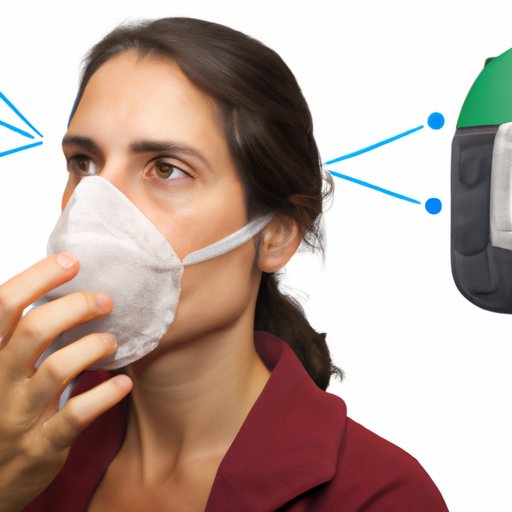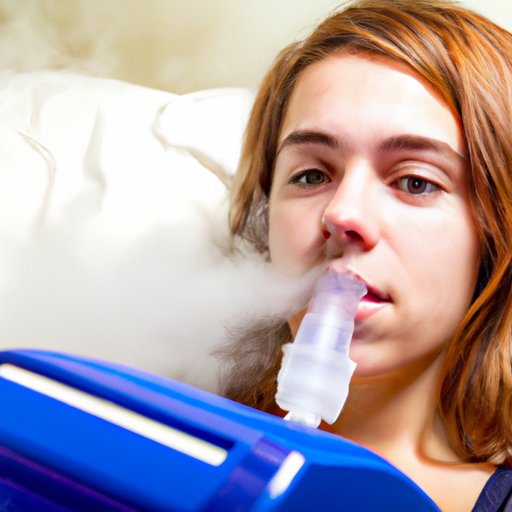Introduction
An upper respiratory infection (URI) is a common illness that occurs when the body’s airways become inflamed due to a virus or bacteria. This can cause symptoms such as sore throat, coughing, nasal congestion, and fever. While most URIs are mild and can be treated at home, some can lead to more serious complications if left untreated. It is important to understand how long you are contagious with an upper respiratory infection in order to prevent it from spreading to other people.
Exploring How Long You Can Spread an Upper Respiratory Infection
The duration of contagiousness for an upper respiratory infection varies depending on several factors. For example, the type of virus or bacteria causing the infection can affect how long you remain contagious. Additionally, the severity of your symptoms and your overall health can also play a role in the length of time you are contagious. Generally speaking, most URIs are contagious for between 7 and 14 days.
When is it Safe to Return to Your Normal Routine After Getting an Upper Respiratory Infection?
Once you have been infected with an upper respiratory infection, there are certain signs that indicate you are no longer contagious. These include feeling better, having no fever for 24 hours, and having improved breathing. Once you have experienced these symptoms, it is safe to return to your normal activities and resume contact with other people. However, it is still important to practice good hygiene and avoid close contact with anyone who may be ill.

Risk Factors for Spreading an Upper Respiratory Infection
Certain individuals are at greater risk of contracting and spreading an upper respiratory infection. This includes young children, the elderly, and those with weakened immune systems. Additionally, people who are exposed to large groups of people, such as healthcare workers, are also more likely to contract and spread URIs. It is important for these individuals to take extra precautions to prevent the spread of infection.

Preventing the Spread of an Upper Respiratory Infection
There are several steps you can take to reduce the risk of spreading an upper respiratory infection. The most important is to wash your hands regularly with soap and water. Additionally, you should avoid close contact with anyone who is sick and stay away from large crowds. Finally, it is important to disinfect surfaces that may be contaminated with germs.

How to Treat an Upper Respiratory Infection
Most upper respiratory infections can be treated with over-the-counter medications such as ibuprofen and acetaminophen. Additionally, there are several home remedies that can help relieve symptoms. These include drinking plenty of fluids, gargling with salt water, and using a humidifier. In some cases, your doctor may prescribe antibiotics or antiviral medication to treat the infection.
Understanding When You are No Longer Contagious With an Upper Respiratory Infection
It is important to understand when you are no longer contagious with an upper respiratory infection. Symptoms such as feeling better and having no fever for 24 hours indicate that you are no longer contagious. However, if your symptoms worsen or do not improve after a few days, it is important to seek medical attention. Your doctor can determine if further treatment is necessary.
Conclusion
Upper respiratory infections are common illnesses that can be spread to others. It is important to understand how long you are contagious with an upper respiratory infection in order to prevent it from spreading. Most URIs are contagious for between 7 and 14 days, and symptoms such as feeling better and having no fever for 24 hours indicate that you are no longer contagious. Taking steps to prevent the spread of infection, such as washing your hands and avoiding close contact with others, is also important. If your symptoms worsen or do not improve, it is important to seek medical attention.
(Note: Is this article not meeting your expectations? Do you have knowledge or insights to share? Unlock new opportunities and expand your reach by joining our authors team. Click Registration to join us and share your expertise with our readers.)
